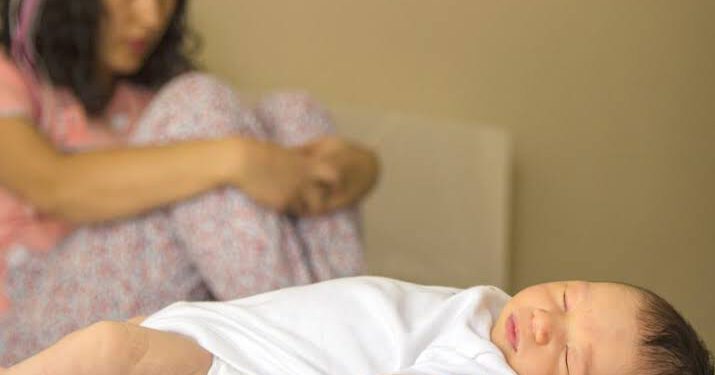“Havechildren “ theysaid…
“it’ll be fun” they said…
One won’t argue that having children is a blessing but we can’t also dismiss the fact that being pregnant, carrying a human for nine months, birthing and raising a child is not a walkover. Being a mother can be a joyful experience and can also be stressful. It is a life changing experience and can sometimes take a strain on the woman either physically, mentally, emotionally or psychologically. The idea of being solely responsible for a fragile being can take a big toll on someone.
After childbirth, a lot of new mothers have conflicted emotions. They experience mood swings; one minute they are elated and the next they are overwhelmed. With the arrival of the newborn, a lot of things will be put in place and changes might be made to accommodate the baby. A lot of women find it hard to adapt to these changes and thus undergo challenges which they may or may not have control of. For instance, they might experience loss of appetite, insomnia, become resentful, experience mood swings, lose interest in lots of things, lack concentration, loss or gain weight, and in some cases have difficulty bonding with the baby. In cases like this, even someone with a strong support system tend to suddenly feel lonely and depressed.
Research shows that PPD occurs in about 6.5% to 20% of women and commonly occurs within six weeks after childbirth. The need to offer assistance to mothers especially first time mothers cannot be overemphasized. The thought of bearing the responsibility of a newborn can be mind-boggling and not everyone can handle it. The big question remains, how can one detect someone or know that she is suffering from PPD?
One of the signs of PPD is MATERNAL REJECTION. After childbirth, the focus is usually on the tiny human being and as a result, some mothers feel jealous with the presence of the baby because they think that he/she will take her place in the life her partner or even family. This feelings is most times not addressed because she feels embarrassed or might even be tagged as being childish. As this feeling remains unaddressed, the mother gradually loses interest in her baby and over time tends to result in her harming the baby or even a family member.
Another sign of PPD is the mother’s inability to breastfeed. Research has shown that an hormone known as Ocytocin ( alias love hormone) is released during breastfeeding and it helps to trigger feelings of love and affection thus enhancing bonding between mother and child. But with the absence of this hormone, some mothers find it hard to bond with the baby. At this point, some mothers start considering themselves as failures and not deserving of the baby thus leading to depression.
INSOMNIA is another sign of PPD. A lot of new mothers find it difficult to sleep especially after being awakened by the infant cries and feeding them.
Furthermore, UNWANTED PREGNANCY especially among teenagers can also lead to PPD. This is because they are not physically and mentally prepared to become mothers. This can result to not being able to bond with the baby.
Also, not having a SUPPORT SYSTEM can also trigger PPD. New mothers need all the love , affection and support they can get especially from their spouse and family. They need to be constantly reassured that they are important and loved. Other signs of PPD includes ( physically, mentally, emotionally and psychologically),_ MARITAL CONTROVERSIES _ ( conflict, separation or divorce) etc
The need to educate women especially new mothers concerning PPD cannot be overemphasized. They should be educated on the journey they are about to embark on so they won’t be caught unaware. Mothers with PPD should seek therapy as it will greatly benefit the mother as well as the child. New moms are encouraged to join support groups and share ideas with people like them. It is important to note that PPD not only affects the mother’s health but also the family at large.
Umeh, Chisom Peace is a 200-level student from the department of English Education at the Lagos State University(LASU).















